In recent years, the Brazilian automotive market has seen a significant surge in the importation of cars from China. This trend has been driven by various factors, including the competitive pricing of Chinese vehicles, the expanding range of models and brands, and the increasing quality and innovation coming out of Chinese automakers. For Brazilian consumers, these vehicles present an attractive alternative to traditionally imported cars from the United States, Japan, and Europe.
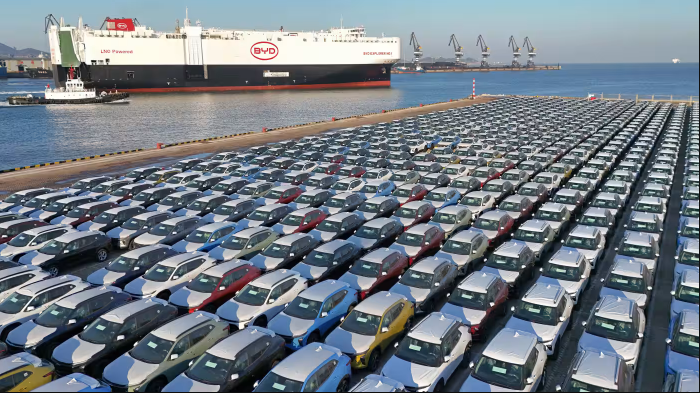
Importing a car from China to Brazil is a complex endeavor that goes beyond the simplicity of buying a vehicle locally. The process demands careful navigation through intricate import regulations, meticulous preparation of required documentation, and adept handling of various costs and logistical challenges. This comprehensive guide delves deeply into each step of the process, offering valuable insights and practical advice to help you achieve a successful and hassle-free car importation. Whether you’re a seasoned importer or a first-time buyer, our detailed analysis will equip you with the knowledge and tools needed to make informed decisions and streamline your import journey.
Current Market Trends
The importation of Chinese cars to Brazil has seen remarkable growth, especially in recent years. In 2023, Brazil imported approximately 42,000 passenger vehicles from China, amounting to a total value of $1.086 billion. This substantial increase underscores the rising popularity of Chinese vehicles among Brazilian consumers. The trend is particularly notable in the segment of new energy vehicles (NEVs), including electric and hybrid models, which are increasingly sought after for their innovation and environmental benefits.

Popular Chinese Car Brands and Models in Brazil
Chinese car brands have significantly penetrated the Brazilian market, with notable performances from Chery, BYD, and Great Wall Motors. In 2023, these brands secured three spots among the top 20 best-selling passenger vehicle brands in Brazil, highlighting their growing market share.
- BYD: This brand has shown exceptional performance in the Brazilian market. For instance, the BYD Dolphin, an all-electric model, sold over 5,000 units within just four months of its launch, making it the best-selling pure electric vehicle in Brazil.
- Chery: Known for its affordable yet feature-rich models, Chery continues to gain traction with its Tiggo series of SUVs.
- Great Wall Motors: With a focus on robust and reliable vehicles, Great Wall Motors has also established a strong presence in the Brazilian market.
Reasons for the Increasing Demand
Several factors contribute to the growing demand for Chinese cars in Brazil:
- Cost-effectiveness: Chinese vehicles are often more affordable than their American, Japanese, and European counterparts, providing excellent value for money.
- Technological Innovation: Chinese car manufacturers are at the forefront of automotive technology, particularly in the field of new energy vehicles. This innovation is appealing to Brazilian consumers who are increasingly conscious of environmental issues.
- Variety and Availability: The extensive range of models available from Chinese manufacturers means there is something to suit every consumer’s needs, from compact city cars to spacious family SUVs.
- Improved Quality: Over the past decade, the quality and reliability of Chinese cars have improved significantly, meeting international standards for safety and performance.
However, there are looming challenges. Starting January 2024, the Brazilian government will gradually reinstate import tariffs on new energy vehicles to encourage the development of the local NEV industry. This policy change may impact the sales growth of Chinese NEVs in Brazil, making it crucial for importers to stay informed about regulatory updates and market shifts.
Import Regulations and Requirements
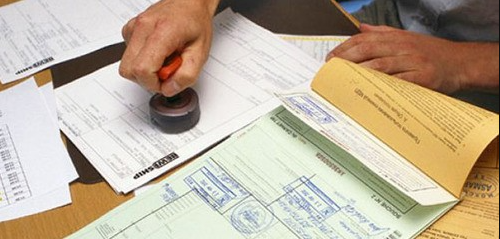
Brazilian Import Laws for Cars
Brazil has specific laws and regulations governing the importation of vehicles. Importing a car requires compliance with both national and international standards. The primary regulatory body overseeing vehicle imports is the National Institute of Metrology, Standardization, and Industrial Quality (INMETRO). It’s essential to understand these laws to avoid any legal complications that could arise during the import process.
Required Documentation
Importing a car into Brazil necessitates a variety of documentation, including:
- Pro forma Invoice: A preliminary invoice provided by the seller in China, detailing the vehicle’s specifications and cost.
- Bill of Lading: A document issued by the shipping company, confirming that the car has been loaded onto the ship.
- Certificate of Origin: Certifies that the vehicle has been manufactured in China.
- Import License (LI): Issued by Brazilian authorities, this document permits the import of the vehicle.
- Emission and Safety Certificates: Proof that the vehicle complies with Brazilian environmental and safety standards.
- Commercial Invoice: A final invoice detailing the purchase price and terms of sale.
Import Taxes and Duties
Brazil imposes various taxes and duties on imported vehicles, which can significantly impact the overall cost. These include:
- Import Duty (II): A tax levied on the vehicle’s CIF (Cost, Insurance, and Freight) value.
- Industrialized Product Tax (IPI): A federal tax applied to manufactured goods.
- Merchandise and Services Circulation Tax (ICMS): A state-level tax applied to the sale of goods and services.
- Social Integration Program (PIS) and Social Security Financing Contribution (COFINS): These federal contributions are also applicable to imported goods.
Emission and Safety Standards Compliance
Imported cars must meet Brazilian emission and safety standards as set by INMETRO and other regulatory bodies. This includes compliance with PROCONVE (Programa de Controle da Poluição do Ar por Veículos Automotores), Brazil’s vehicle emissions control program. Failure to meet these standards can result in the vehicle being prohibited from entering the country.
Choosing a Shipping Method
When importing cars from China to Brazil, selecting the right shipping method is crucial for ensuring that your vehicle arrives safely and cost-effectively. The primary methods of shipping cars include sea freight and air freight. Each method has its advantages and considerations, and the best choice depends on factors such as cost, security, and the urgency of delivery.
Sea Freight Options
Sea freight is the most commonly used and economical method for shipping cars. It primarily includes two approaches:
RoRo (Roll-on/Roll-off) Shipping
RoRo is a popular and cost-effective shipping method where vehicles are driven onto a specialized vessel at the port of origin and driven off at the destination port. This method is particularly suitable for standard vehicles that can be self-driven. RoRo shipping offers several benefits:
- Cost-Effective: RoRo is generally less expensive than container shipping because it involves less handling and fewer labor costs.
- Efficiency: Loading and unloading are quicker compared to container shipping, reducing the overall transit time.
- Simplicity: The process is straightforward, with minimal handling of the vehicle, reducing the risk of damage.
However, RoRo may not be ideal for high-value or luxury cars due to the lack of additional protection that containers provide.
Container Shipping
Container shipping involves placing the vehicle inside a standard shipping container for transport. This method offers enhanced protection and is typically used for high-end or special vehicles. Key advantages include:
- Enhanced Protection: Vehicles are shielded from the elements and potential damage during transit.
- Security: The vehicle is securely locked within the container, reducing the risk of theft or vandalism.
- Flexibility: Containers can be easily transferred between different modes of transport, such as ships, trucks, and trains.
The main drawback of container shipping is the higher cost compared to RoRo. However, for valuable or delicate vehicles, the added protection may justify the expense.
Air Freight
Although significantly more expensive, air freight is an option for high-end luxury cars or vehicles that require urgent delivery. Air freight offers several benefits:
- Speed: Air freight drastically reduces transit time, making it the fastest shipping method available.
- Reliability: Air freight schedules are generally more reliable than sea freight, with fewer delays.
The high cost of air freight typically limits its use to expensive or time-sensitive shipments. However, for certain scenarios, the benefits of quick delivery and safe handling may outweigh the costs.
Comparison of Shipping Methods
| Shipping Method | Cost | Protection | Speed | Best For |
|---|---|---|---|---|
| RoRo | Low | Moderate | Slow | Standard, self-driving vehicles |
| Container Shipping | High | High | Moderate | High-end or special vehicles |
| Air Freight | Very High | Very High | Fast | High-end luxury or urgent vehicles |
Choosing the appropriate shipping method depends on your specific needs, including budget, vehicle type, and delivery timeline. For most standard vehicles, RoRo offers a cost-effective solution, while container shipping provides added security for high-value cars. Air freight remains the premium choice for urgent and high-end shipments.
By carefully evaluating these options, you can make an informed decision that ensures your vehicle arrives in Brazil safely, securely, and within your budget. Working with a reliable freight forwarder like Dantful International Logistics can further streamline the process, offering expert guidance and customized solutions to meet your specific shipping needs.
Step-by-Step Import Process
Importing a car from China to Brazil involves several meticulous steps, each requiring careful attention to detail to ensure compliance with regulations and successful delivery of the vehicle. Here’s a detailed guide to the import process:
Car Selection and Purchase in China
The first step involves selecting the car you wish to import. This includes researching different brands and models, considering factors like cost, features, and availability. Once you have made your selection, you will need to purchase the vehicle from a reputable seller or dealer in China.
Pre-Shipment Inspection and Documentation
Before the vehicle is shipped, it must undergo a pre-shipment inspection to ensure it meets the necessary quality and safety standards. This inspection is typically conducted by an independent third party and involves checking the vehicle’s condition, verifying its specifications, and ensuring it complies with Brazilian import regulations.
Required documentation for this phase includes:
- Inspection Certificate
- Pro forma Invoice
- Certificate of Origin
Arranging Shipping and Insurance
After the inspection, the next step is to arrange for shipping. This involves choosing a shipping method (such as RoRo) and booking space on a vessel. It is also essential to secure insurance for the vehicle to cover potential risks during transit. Working with a reliable freight forwarder like Dantful International Logistics can streamline this process, ensuring that all logistics are handled efficiently.
Customs Clearance in Brazil
Upon arrival at the Brazilian port, the vehicle must go through customs clearance. This step involves:
- Submitting Required Documentation: Including the Bill of Lading, Commercial Invoice, Import License, and Emission and Safety Certificates.
- Paying Import Taxes and Duties: These include Import Duty, IPI, ICMS, PIS, and COFINS.
- Vehicle Inspection: The vehicle will be inspected by Brazilian authorities to ensure it meets local standards.
Car Registration and Licensing in Brazil
The final step is to register and license the vehicle in Brazil. This involves:
- Submitting Proof of Purchase and Import Clearance: Including all relevant documentation.
- Paying Registration Fees: These fees vary depending on the state and the type of vehicle.
- Obtaining Vehicle Plates and Registration Certificate: Once all fees are paid and documents submitted, you will receive the vehicle’s registration certificate and plates.
READ MORE:
- Shipping From China to the United States
- Shipping From China TO Canada
- Shipping From China TO Mexico
- Shipping From China to Panama
- Shipping From China to Costa Rica
- Shipping From China to Brazil
- Shipping From China TO Colombia
- Shipping From China to Jamaica
- Shipping From China to Venezuela
Import and Ship Cars Costs from China to Brazil
Understanding the total costs involved in importing and shipping a car from China to Brazil is essential for budgeting and financial planning. Here’s a breakdown of the key cost components:
Purchase Price
The initial cost of the vehicle in China, which varies depending on the make, model, and specifications. It’s advisable to consider additional costs such as pre-shipment inspection fees, which the seller may include.
Shipping Costs
Shipping costs depend on the shipping method chosen, the size and weight of the vehicle, and the shipping company’s rates. For example, RoRo shipping is generally more affordable compared to container shipping. Here’s a rough estimate:
| Shipping Method | Average Cost (USD) |
|---|---|
| RoRo | $1,200 – $2,500 |
| Container | $2,500 – $4,000 (40ft container) |
Import Duties and Taxes
Brazilian import duties and taxes can significantly increase the overall cost. These include:
- Import Duty: Typically around 35% of the vehicle’s CIF value.
- IPI: Varies between 5% and 15% depending on the vehicle type.
- ICMS: Generally around 18% but can vary by state.
- PIS and COFINS: Combined rate of approximately 9.25%.
Customs Clearance Fees
These fees cover the administrative costs of processing the vehicle through customs. They include:
- Brokerage Fees: Fees paid to customs brokers for handling the clearance process.
- Inspection Fees: Costs associated with the vehicle inspection at the port.
Local Registration and Licensing Fees
Once the vehicle has cleared customs, additional costs include:
- Registration Fees: Vary by state but generally range from $100 to $300.
- Licensing Fees: Cost for vehicle plates and registration certificate, which can range from $50 to $200.
By understanding these costs and preparing accordingly, importers can avoid unexpected expenses and ensure a smooth import process. Working with a reliable freight forwarder like Dantful International Logistics can help manage these costs effectively and provide expert guidance throughout the process.
Challenges and Considerations
Importing a car from China to Brazil can be a rewarding endeavor, but it comes with its own set of challenges and considerations. Understanding these potential obstacles can help you prepare better and navigate the complexities of the process more efficiently.
Language Barriers
One of the primary challenges is the language barrier. Effective communication is crucial for negotiating the purchase, arranging shipping, and handling customs. Miscommunications can lead to errors, delays, and additional costs. It’s often beneficial to work with bilingual agents or freight forwarders who can bridge this gap.
Quality Control Issues
Ensuring the quality of the vehicle before it leaves China is vital. Pre-shipment inspections are necessary to verify that the car meets all required specifications and standards. However, inconsistencies in quality and manufacturing standards can be a concern. Collaborating with reputable sellers and third-party inspection services can mitigate these risks.
Warranty and After-Sales Service
Chinese car manufacturers may not have extensive after-sales service networks in Brazil. This can pose a challenge for servicing and maintenance, as well as warranty claims. Importers should consider the availability of spare parts and the reliability of local service providers. Partnering with brands that offer robust after-sales support can be advantageous.
Adapting to Brazilian Market Preferences
The preferences of Brazilian consumers can differ significantly from those in China. Factors such as fuel type, vehicle size, and features may impact the popularity of imported models. Understanding local market trends and consumer preferences is crucial for selecting the right vehicles to import.
Working with a Reliable Freight Forwarder
Choosing a reliable freight forwarder is vital for ensuring a smooth and efficient car import process from China to Brazil. A professional freight forwarder can manage the complexities of international shipping, handle all necessary documentation, and provide valuable insights to mitigate risks. Among the many options available, Dantful International Logistics stands out as a premier choice for several compelling reasons.

Here are some key advantages of working with Dantful:
Extensive Experience and Expertise
With years of experience in the freight forwarding industry, Dantful has developed a deep understanding of the intricacies involved in importing vehicles. Their expertise spans various aspects of international logistics, from navigating import regulations to managing customs clearance efficiently. This wealth of experience ensures that your shipment is handled with the utmost professionalism and care.
Comprehensive Service Offering
Dantful provides a one-stop solution for all your logistics needs, including:
- Sea and Air Freight Options: Whether you prefer the cost-effectiveness of RoRo and container shipping or the speed of air freight, Dantful offers flexible shipping options to suit your requirements.
- Customs Clearance: Dantful’s team of experts handles all customs documentation and procedures, ensuring compliance with Brazilian import regulations and minimizing the risk of delays and fines.
- Insurance Services: Protect your investment with comprehensive insurance coverage, tailored to safeguard your vehicle against potential risks during transit.
- Warehousing Solutions: Dantful offers secure warehousing facilities, allowing for safe storage of your vehicles before final delivery.
Strong Global Network
Dantful boasts a robust global network of partners and agents, ensuring seamless coordination and communication across different regions. This extensive network enables them to provide reliable and timely updates, manage unforeseen challenges, and ensure your vehicle reaches its destination without hassles.
Customized Solutions
Understanding that each import scenario is unique, Dantful offers personalized logistics solutions to cater to your specific needs. Whether it’s a high-end luxury car requiring special handling or bulk shipments of standard vehicles, Dantful tailors their services to ensure optimal efficiency and cost-effectiveness.
Superior Customer Service
At Dantful, customer satisfaction is a top priority. Their dedicated customer service team is available to assist you at every step of the import process. From initial consultation to final delivery, Dantful provides transparent communication, regular updates, and prompt responses to any queries or concerns.
Dantful International Logistics Services:
- Dantful Ocean Freight Services
- Air Freight From China
- Amazon FBA Freight Forwarding
- WAREHOUSE Services
- One-Stop Customs Clearance Solution
- Cargo Insurance Services in China
- DDP Shipping Services By Dantful Logistics
- Out of Gauge Cargo Transportation Shipping Services
FAQ
What are the main shipping methods for importing cars from China to Brazil?
The primary shipping methods are RoRo (Roll-on/Roll-off) and container shipping. RoRo is more cost-effective and efficient for standard vehicles, while container shipping offers additional protection for high-value or luxury cars.
What documentation is required for importing a car to Brazil?
Key documents include the Pro forma Invoice, Bill of Lading, Certificate of Origin, Import License (LI), and Emission and Safety Certificates.
What are the import taxes and duties involved?
Import taxes and duties include Import Duty, IPI, ICMS, PIS, and COFINS. These taxes can significantly increase the overall cost of importing a vehicle.
How can a freight forwarder assist in the import process?
A reliable freight forwarder like Dantful International Logistics can manage logistics, handle documentation, facilitate customs clearance, and provide valuable insights and support throughout the import process.
What are the challenges in importing Chinese cars to Brazil?
Challenges include language barriers, quality control issues, warranty and after-sales service concerns, and adapting to Brazilian market preferences.
References
- National Institute of Metrology, Standardization, and Industrial Quality (INMETRO): INMETRO
- Programa de Controle da Poluição do Ar por Veículos Automotores (PROCONVE): PROCONVE

Young Chiu is a seasoned logistics expert with over 15 years of experience in international freight forwarding and supply chain management. As CEO of Dantful International Logistics, Young is dedicated to providing valuable insights and practical advice to businesses navigating the complexities of global shipping.
The other language versions of this article:
- How to Successfully Import and Ship Cars from China to Brazil: A Comprehensive Guide
- كيفية استيراد وشحن السيارات بنجاح من الصين إلى البرازيل: دليل شامل
- How to Successfully Import and Ship Cars from China to Brazil: A Comprehensive Guide
- Как успешно импортировать и отправлять автомобили из Китая в Бразилию: подробное руководство (dantful.com)
- How to Successfully Import and Ship Cars from China to Brazil: A Comprehensive Guide
- Comment réussir à importer et expédier des voitures de la Chine au Brésil : un guide complet
- Çin’den Brezilya’ya Araba Nasıl Başarılı Bir Şekilde İthal Edilir ve Gönderilir: Kapsamlı Bir Kılavuz
- Come importare e spedire con successo automobili dalla Cina al Brasile: una guida completa
- Hoe u auto’s met succes kunt importeren en verzenden van China naar Brazilië: een uitgebreide gids


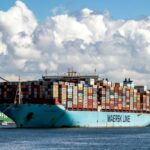

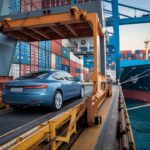
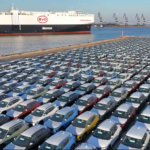
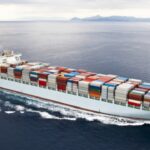

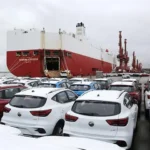
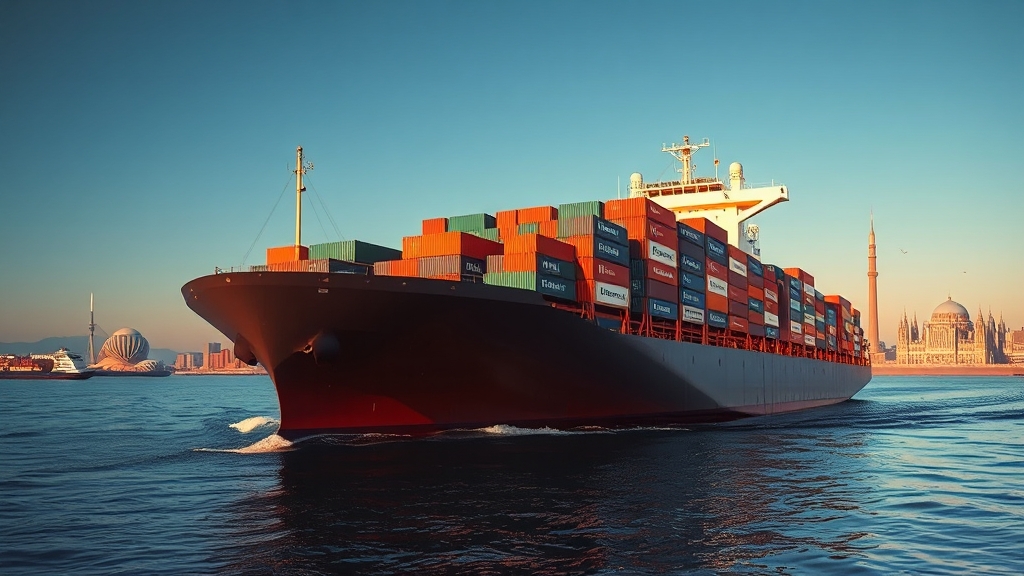
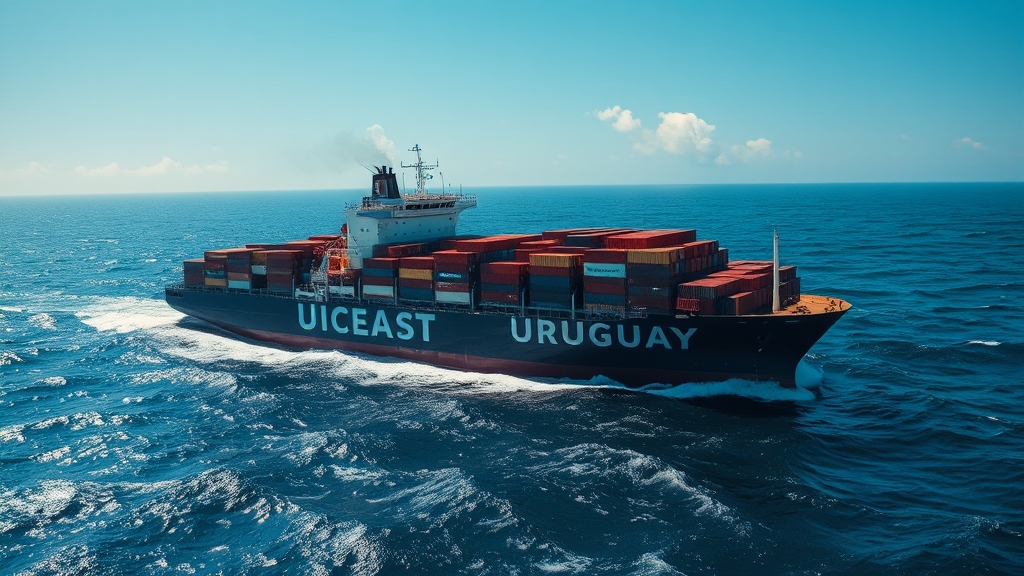
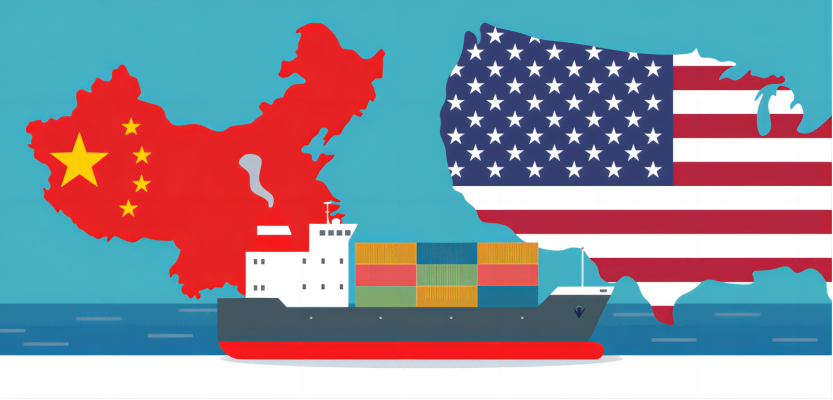
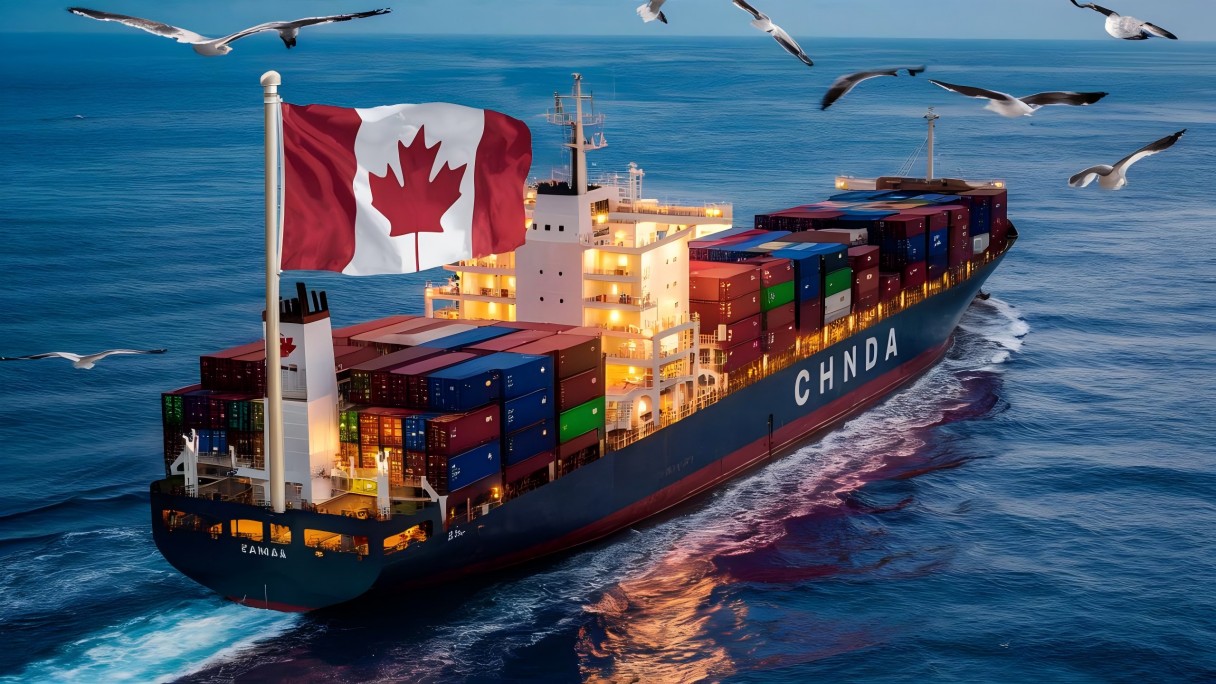
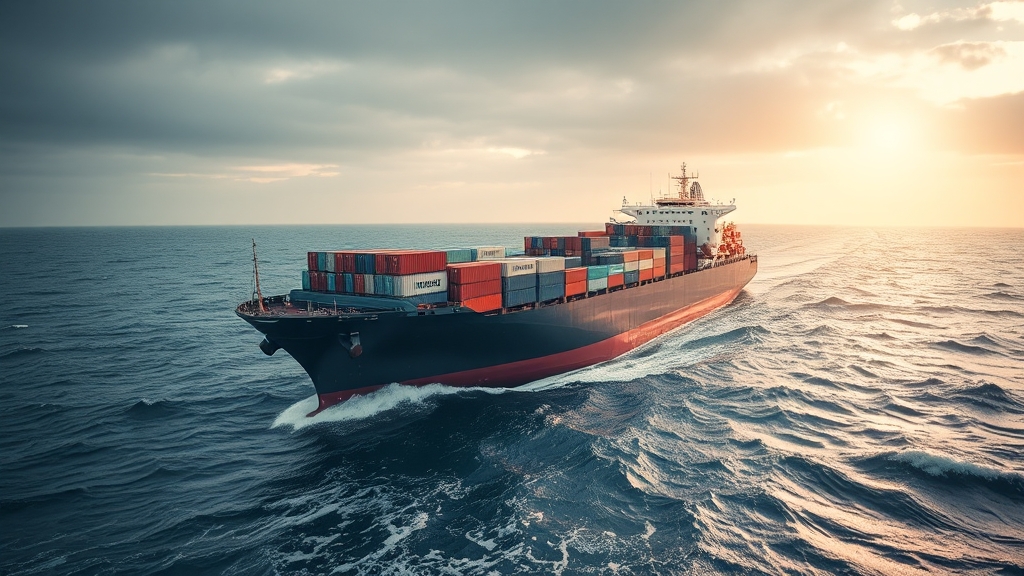





 Afrikaans
Afrikaans Shqip
Shqip አማርኛ
አማርኛ العربية
العربية Հայերեն
Հայերեն Azərbaycan dili
Azərbaycan dili Euskara
Euskara Беларуская мова
Беларуская мова বাংলা
বাংলা Bosanski
Bosanski Български
Български Català
Català Cebuano
Cebuano Chichewa
Chichewa 简体中文
简体中文 繁體中文
繁體中文 Corsu
Corsu Hrvatski
Hrvatski Čeština
Čeština Dansk
Dansk Nederlands
Nederlands English
English Esperanto
Esperanto Eesti
Eesti Filipino
Filipino Suomi
Suomi Français
Français Galego
Galego ქართული
ქართული Deutsch
Deutsch Ελληνικά
Ελληνικά Kreyol ayisyen
Kreyol ayisyen Harshen Hausa
Harshen Hausa Ōlelo Hawaiʻi
Ōlelo Hawaiʻi עִבְרִית
עִבְרִית हिन्दी
हिन्दी Hmong
Hmong Magyar
Magyar Íslenska
Íslenska Igbo
Igbo Bahasa Indonesia
Bahasa Indonesia Gaeilge
Gaeilge Italiano
Italiano 日本語
日本語 Basa Jawa
Basa Jawa ಕನ್ನಡ
ಕನ್ನಡ Қазақ тілі
Қазақ тілі ភាសាខ្មែរ
ភាសាខ្មែរ 한국어
한국어 كوردی
كوردی Кыргызча
Кыргызча ພາສາລາວ
ພາສາລາວ Latin
Latin Latviešu valoda
Latviešu valoda Lietuvių kalba
Lietuvių kalba Lëtzebuergesch
Lëtzebuergesch Македонски јазик
Македонски јазик Malagasy
Malagasy Bahasa Melayu
Bahasa Melayu മലയാളം
മലയാളം Maltese
Maltese Te Reo Māori
Te Reo Māori मराठी
मराठी Монгол
Монгол ဗမာစာ
ဗမာစာ नेपाली
नेपाली Norsk bokmål
Norsk bokmål پښتو
پښتو فارسی
فارسی Polski
Polski Português
Português ਪੰਜਾਬੀ
ਪੰਜਾਬੀ Română
Română Русский
Русский Samoan
Samoan Gàidhlig
Gàidhlig Српски језик
Српски језик Sesotho
Sesotho Shona
Shona سنڌي
سنڌي සිංහල
සිංහල Slovenčina
Slovenčina Slovenščina
Slovenščina Afsoomaali
Afsoomaali Español
Español Basa Sunda
Basa Sunda Kiswahili
Kiswahili Svenska
Svenska Тоҷикӣ
Тоҷикӣ தமிழ்
தமிழ் తెలుగు
తెలుగు ไทย
ไทย Türkçe
Türkçe Українська
Українська اردو
اردو O‘zbekcha
O‘zbekcha Tiếng Việt
Tiếng Việt Cymraeg
Cymraeg יידיש
יידיש Yorùbá
Yorùbá Zulu
Zulu